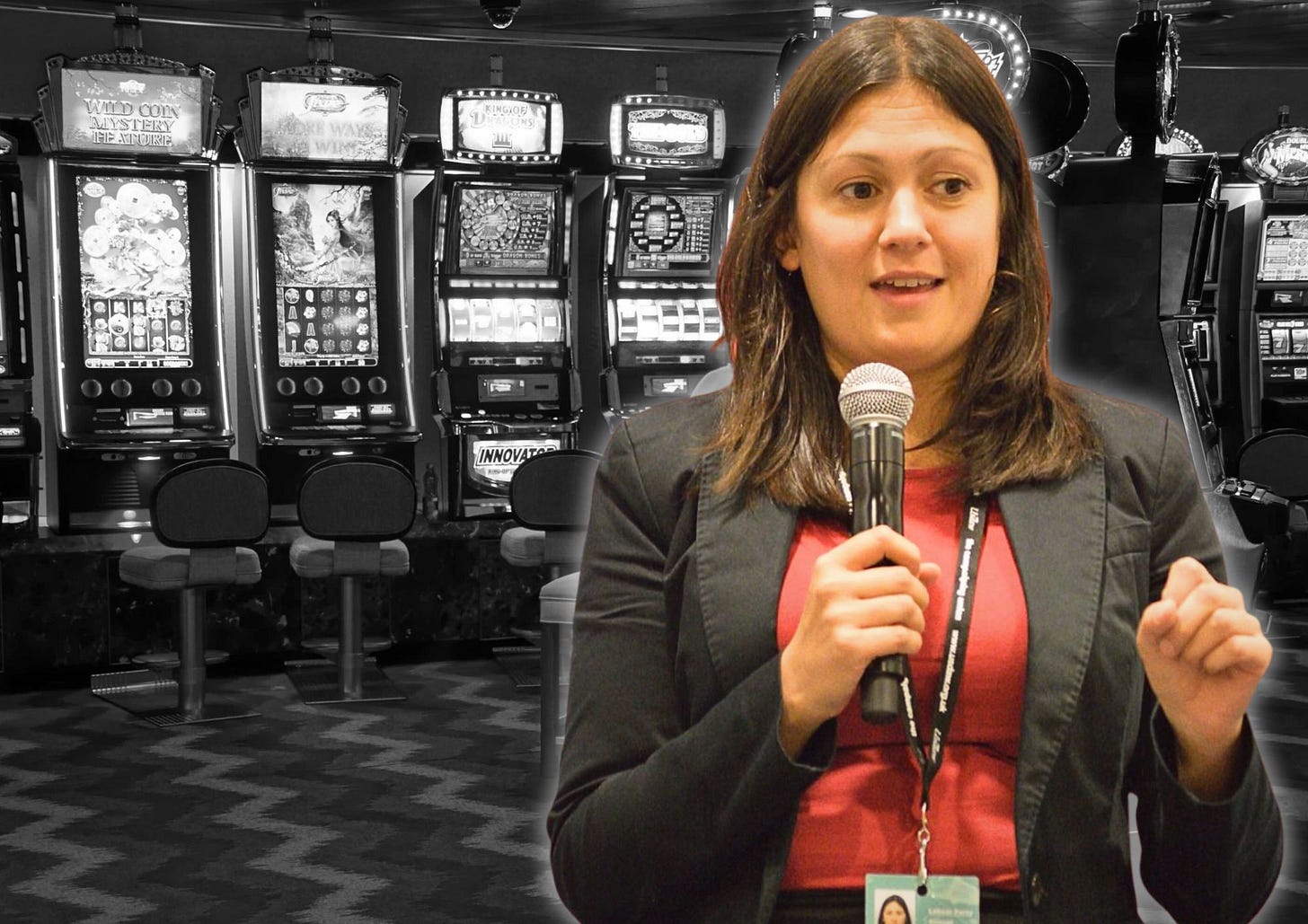'There's a reason they put them in Cally Road – and not next to Harrods in Knightsbridge'
As Islington and Hackney councils battle to keep more betting shops and slot 'casinos' out of areas like Finsbury Park, is the government tying their hands?

Thank you again to all the new subscribers of NewJournal+, both free and paid. By signing up, you are helping to protect our newspapers in Camden and Islington and the provision of a challenging, investigative voice for everyone. For this week’s feature, Daisy Clague reveals the bill local authorities are facing to defend our high streets from the spread of betting shops and slot arcades in London’s more disadvantaged areas – with a battle ongoing in Finsbury Park. She also talks to people who have been through gambling addictions and tackles the idea that those who want more regulation are accused of wanting to clamp down on a ‘working class’ leisure pursuit.
Don’t forget to look out for the next instalment of our politics column, the North London Bubble, coming later this weekend and, of course, our Monday digest at the start of the week. Thank you for all your support and don’t forget to share this new service with your friends and, if you can afford to, consider a paid subscription.
ACCORDING to north London folklore, the eponymous bookmaker William Hill placed his first ever bet at the Archway Tavern, popping in on his way to the races soon after moving down from Birmingham at the end of the 1920s.
While that particular legend may or may not be true, it would be harder to dispute the story of how Mr Hill’s company and its competitors went on to build gambling empires on some of the most deprived high streets across the country.
Their expansion has altered the make-up of our shopping parades and normalised a once windowless, smoky world of quick wins and faster losses, leaving local authorities, including Camden and Islington, trying but struggling to work out how to press pause.
We reveal in NewJournal+ today how councils are now faced with a treacherous gamble of their own: a £100,000 punt on legal fees just to stop a single new branch opening.
Kilburn High Road was once dubbed the “bookmakers’ mile” as it has more than eight gambling venues on that stretch, while on our doorstep in Camden Town there are six bookmakers and slots casinos in less than 500 metres between the tube station and Mornington Crescent.
That word casino might conjure up images of green baize tables, clicking chip stacks and James Bond-types in suits watching the whirl of a roulette wheel while clasping a martini, but the reality is very different.
I stopped into one of them on a sunny Friday morning earlier this month and was transported to Las Vegas, only if Vegas was a small, dark, air-conditioned room on Camden High Street.
Game Nation is a 24/7 establishment with half a dozen flashing slot machines along each wall – essentially what people used to call ‘the fruities’, but more sophisticated computers now – and another four out back in the smoking area.
Two friendly attendants offer me a drink – “Coke? Fanta?” – and show me how to buy a token to use on the overwhelming variety of machines, which turn out to all do the same thing.
It’s quiet – me and one other punter – and I have no luck with my handful of 50p turns on Fishin’ Frenzy, Shenanigans Pots O Luck and Napoleon: Rise of an Empire.
So far, so harmless, and for many people, gambling is exactly that: harmless, sociable, fun.
But of course there is a darker side to the proliferation of gambling venues on London’s high streets and with it a growing concern among local politicians that their attempts to protect the vulnerable are being bypassed – and amid shuddering warnings from those who have survived this lonely addiction who I spoke to this week.
‘They’re not putting them next to Harrods’
That frustration is revealed in an open letter from council leaders to Lisa Nandy, the secretary of state for culture, media and sport.
Spearheaded by Brent Council and co-signed by 37 other local authorities including Camden and Islington, the letter called for gambling reform to help stem “a groundswell of land-based gambling operators, spreading along our high streets and seemingly targeting areas of higher deprivation in a bid to maximise profits”.
The Gambling Business Group, which represents companies across the sector, quickly issued an 8-page response, expressing its concern for what it claimed was “unevidenced statements” about the link.
But Islington’s community safety chief, Labour councillor Angelo Weekes, told me that this is indeed the pattern in the borough, where gambling shops are clustered in lower-income areas like Caledonian Road, which has four, and Holloway’s Nag’s Head, where there are three on one block and two more on the next.

Councillor Weekes said: “There are many estates in and around those areas and some of the people living there are among our most vulnerable residents. If you’re on a low income, you might want to try and boost that income by having a gamble, having a bet.
“But these people are suffering from economic hardship and that’s probably why these areas are targeted. The gambling industry may try to tell me otherwise, but the link isn’t coincidental.”
Councillor Soraya Adejare – who represents a ward on the Hackney side of Finsbury Park – said: “They're not placing a [betting shop] at Knightsbridge by Harrods, they’re placing them where there are high levels of poverty, high levels of mental health issues, high levels of vulnerability.
“There's a reason for that. [They're] trying to make money off the back of people [they] know are vulnerable, and for me that's a problem in itself.”




